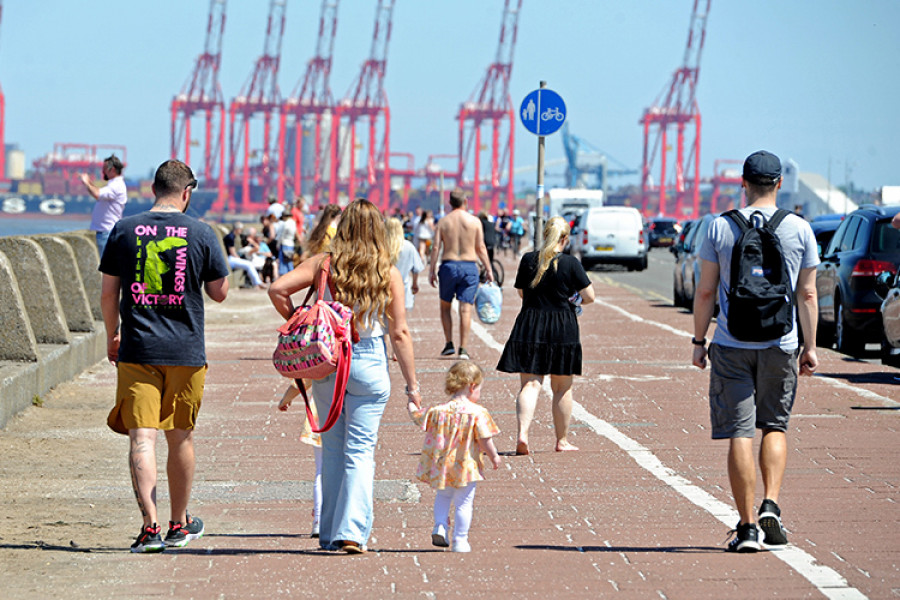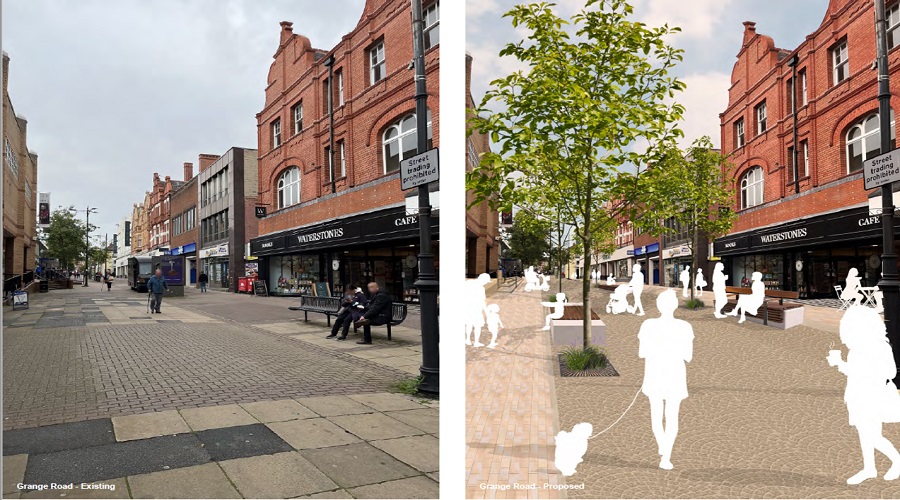Stay safe during the hot weather
As some very hot weather is expected, here are some tips to help keep you and those you love safe as the temperatures rise.
- Stay cool indoors by closing curtains on rooms that face the sun
- Drink plenty of fluids and don't drink too much alcohol
- Don't leave anyone, especially babies, young children and animals, in a locked vehicle
- Keep out of the sun between 11am and 3pm when the suns rays are strongest
- Keep in the shade, use sunscreen with a high SPF and UVA rating, and wear a wide-brimmed hat
- Avoid physical exercise in the hottest part of the day
- Take water with you if travelling
- Check in with elderly or vulnerable neighbours who may struggle to get a regular drink
You can find out more about sun safety on the NHS website.
The government have also shared their 'beat the heat' guide.
Tips to keep babies and young children cool and protect them from the sun
- Keep babies out of direct sunlight, particularly between 11am and 3pm, when the sun is at its strongest.
- Attach a parasol or sunshade to your baby's pushchair to keep them out of direct sunlight. Don’t cover a pram with a blanket as this can make it even hotter for the baby.
- Apply a sunscreen with a sun protection factor (SPF) of at least 30 to your baby's skin and apply the sunscreen regularly, particularly if your child is in and out of the sea or paddling pool.
- Make sure your child wears a sunhat with a wide brim or a long flap at the back to protect their head and neck from the sun.
- Run them a cool bath before bedtime.
Be aware of the signs of heat illness
- Tiny red blisters on the skin that have a prickling sensation (heat rash)
- Headache, nausea, vomiting
- Excessive sweating
- Dizziness or feeling like you might “pass out”
- Cool/clammy skin
- Rapid breath or pulse
- Muscle cramps
If you, or anyone around you, experience any of these symptoms, get to a cool, shaded place and slowly drink water. NHS 111’s team of trained clinicians and advisors will direct you to the right care. For more serious symptoms like seizures and lack of consciousness, call 999 immediately.
Our friends at Merseyside Fire Service have shared some useful fire safety hints
- Never throw hot ashes/disposable barbecues in the bin before they have fully cooled - it can and does cause fires
- Don't be tempted to cool off in open water such as rivers, lakes & canals - they have many hidden dangers and the water can still be very cold even on the warmest of days
- Check electric fans are in good working order before using them. If the plug or wires look frayed or damaged, don't use them!
- Keep barbecues away from buildings, fences, bushes & trees and anything else that could catch fire
- Keep mirrors, reflective items & aerosols away from windows - they can cause a fire when the sun's rays are reflected through them onto flammable surfaces.
The RNLI have some life-saving advice about what to do, if you do get into cold water unexpectedly
If you found yourself struggling in the water unexpectedly, your instinct would tell you to swim hard. But cold water shock could make you gasp uncontrollably. Then you could breathe in water and drown. Instead, you should Float to Live.
- If you're struggling in the water, fight your instinct to thrash around
- Lean back, extend your arms and legs
- Gently move them around to help you float if you need to
- Float until you can control your breathing
- Only then, call 999 for help or swim to safety




